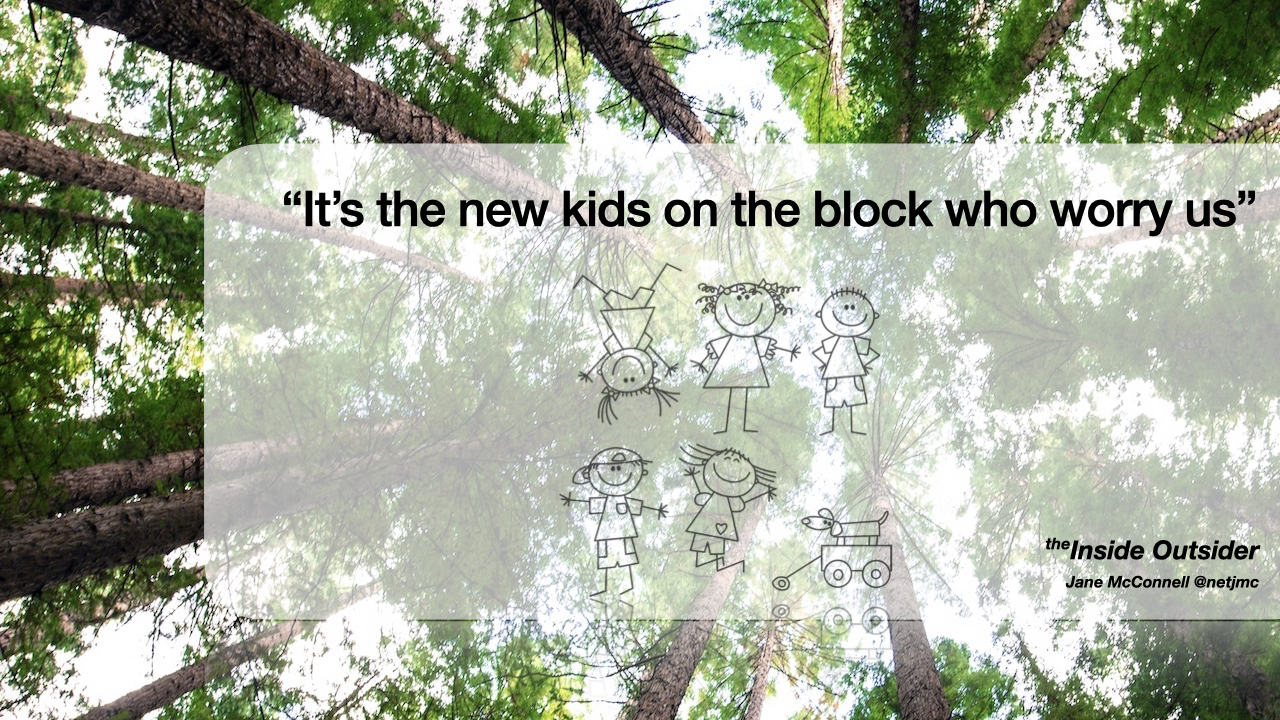5. Will your company be replaced by a startup?
From Inside Outsider

From Inside Outsider

I participated in a daylong event organized by a major global service provider to the financial industry, where I had been asked to talk about the organization in the digital age. I listened to their internal discussions about the future of the financial industry and learned that financial institutions were more concerned about competition from startups and fintech companies than from each other.
This was over 5 years ago but was reconfirmed by one of my associates in the gig mindset workshops run in 11 countries over 2019. The workshops were designed to understand peoples’ perceptions of the upsides and downsides of the traditional mindset versus the gig mindset https://netjmc.com/upsides-and-downsides-of-traditional-and-gig-mindsets/
My associate reported back that workshop participants from industries “fearing disruption” have seen a surge in the number of gig mindsetters brought in to help foster new and innovative ideas, ways of working, products, and so on.
Several participants from the finance industry said they don’t fear each other but are uneasy about the “new kids on the block,” such as fintech startups and small incumbents providing better banking experiences.
I decided to check the “new kids” challenge across industries in a general survey question by asking: “Where do you see the most significant threats to your organization?” With this broader context, the major threat that emerged was the changing behavior of customers and consumers. However, the new kids on the block are still a threat: one third of the people surveyed responded “Entrepreneurs and small companies with new business models“. Global trade restructuring and ecosystems are currently less concerning. Here are the figures:
In the 2016 edition of annual surveys about the organization in the digital age, I explored where companies were making investments to understand new trends and disruptions. Answer options are listed here. (Figures combine significant and moderate investments.)
Many organizations were using the wrong approaches. You can see from the numbers above that they were focusing on their known world of peers and using bench-marking which by definition is based on the past. Also, they were dependent on external consultants rather than their internal resources. This data is from 2016 and hopefully now, in 2021, they have matured and set up their own future-leaning approaches. I’ll write more about this in a coming issue.
I want to share a potentially optimistic piece of data with you: Organizations are building up greater flexibility over time. This will certainly make a “survivability” difference in our fast-changing world where startups are more common and often better-funded than in the past.
I tracked flexibility by asking people to indicate their agreement or disagreement to this statement:
“Our organization can respond rapidly to major events or transitions: market changes, competition, economic downturns, environmental or disaster events.”
The results since 2014:
The new kids on the block are more flexible and faster-moving than large, established companies. I believe that organizations who responded strongly agree are likely to not just survive, but truly thrive.
I’ll be writing soon about some legacy companies who are leading their fields in spite of being around for many decades.
Let’s call them the old kids on the block, and celebrate their success…. Stay tuned!
Share your thoughts in the comments on the original post on LinkedIn (from January 12, 2022) and see what others think.
Nothing matches your request, please try again with a different search term.